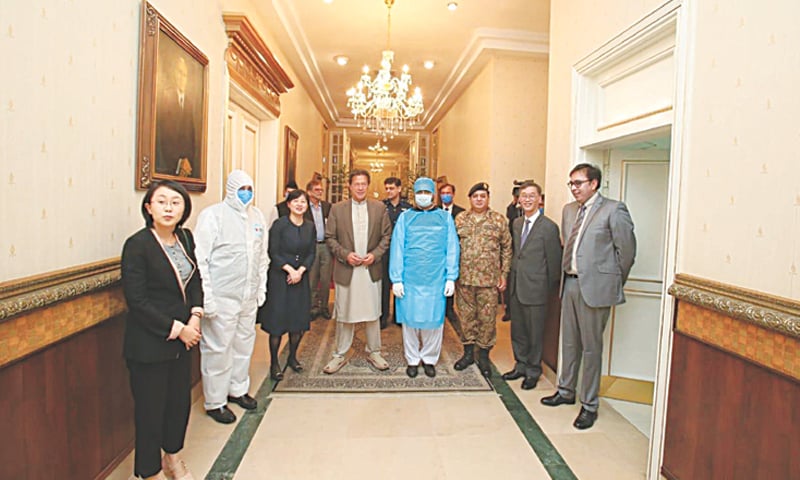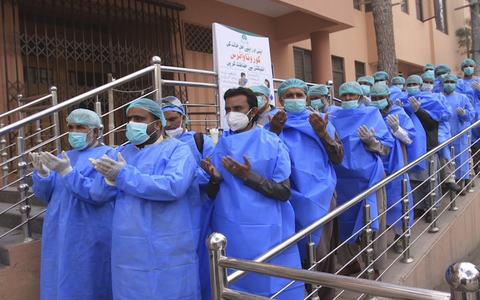ISLAMABAD: Ten million people belonging to low-income groups will get a Rs12,000 four-month stipend in a lump sum under Prime Minister Imran Khan’s relief package announced by the federal government on Tuesday to mitigate adverse impact of coronavirus on their family budget.
According to a document of the Finance Division, the government would provide Rs144 billion under the package and that money would be in addition to already allocated funds for the government’s programme for the poor, called Ehsaas.
The prime minister has also announced Rs200 billion for daily wage workers and it is expected that the amount may also be distributed through provinces. However, the strategy for the disbursement of that amount is still being devised.
Top officials of the government running Ehsaas programme had proposed to the government to announce Rs4,000 per month for the poor people badly affected by the deadly viral disease, but the ministry of finance disagreed and decided to provide a monthly stipend of Rs3000. Ehsaas officials decided to give the amount of Rs12,000 in lump sum to the eligible and deserving people.
Sania Nishtar says programme will be SMS-based
The prime minister had announced Rs1.15 trillion relief package to help the poor and members of low-income group, agriculture, export and industrial sectors amid adverse impact of coronavirus pandemic on the country’s economy.
According to the document, of the total 10 million beneficiaries of the government decision, five million people are those who are already getting the monthly stipend under Ehsaas Kafalat while three million people are those whose monthly income is Rs20,000. The other two million people are daily wage workers and vendors who are at present not registered with the programme, will be covered under the PM’s relief package.
When contacted, Special Assistant to the Prime Minister on Poverty Alleviation Dr Sania Nishtar told Dawn that the whole programme would be Short Messaging Service (SMS) based as those already registered with Ehsaas Kafalat would soon get an SMS that they could collect Rs12,000 from two already notified banks — Habib Bank Limited (HBL) and Bank Al-Falah Limited.
She said that those low-income group people not currently enrolled in the Ehsaas Kafalat programme would be asked to send their Computerised National Identity Card (CNIC) numbers to designated mobile phone numbers through SMS, if they were interested in getting monetary assistance under the PM’s package.
“Their eligibility for this category will be assessed by relaxing the poverty criteria in the database. If someone is not in the database, then those people will be asked to submit their credentials with deputy commissioner office concerned where their financial status will be assessed and names of those declared eligible will be sent to Ehsaas programme for further procedure,” she said.
She said that when Ehsaas receives lists of eligible applicants from DC offices, they will be put in a filter with the help of National Database Registered Authority (Nadra) to ascertain they fell in the category of eligible applicants under the government stipulated criteria (which says these people should not be government servants or spouses of government servants and they should not have a car and motorbike and no record of having travelled abroad).
In the next stage, these applicants’ data would be put in a computer having the bigger data to confirm the veracity of these applicants’ financial status.
Once the applicants are cleared by the Ehsaas assessment mechanism, they will receive an SMS for collection of the money from the designated banks.
Published in Dawn, March 27th, 2020



































